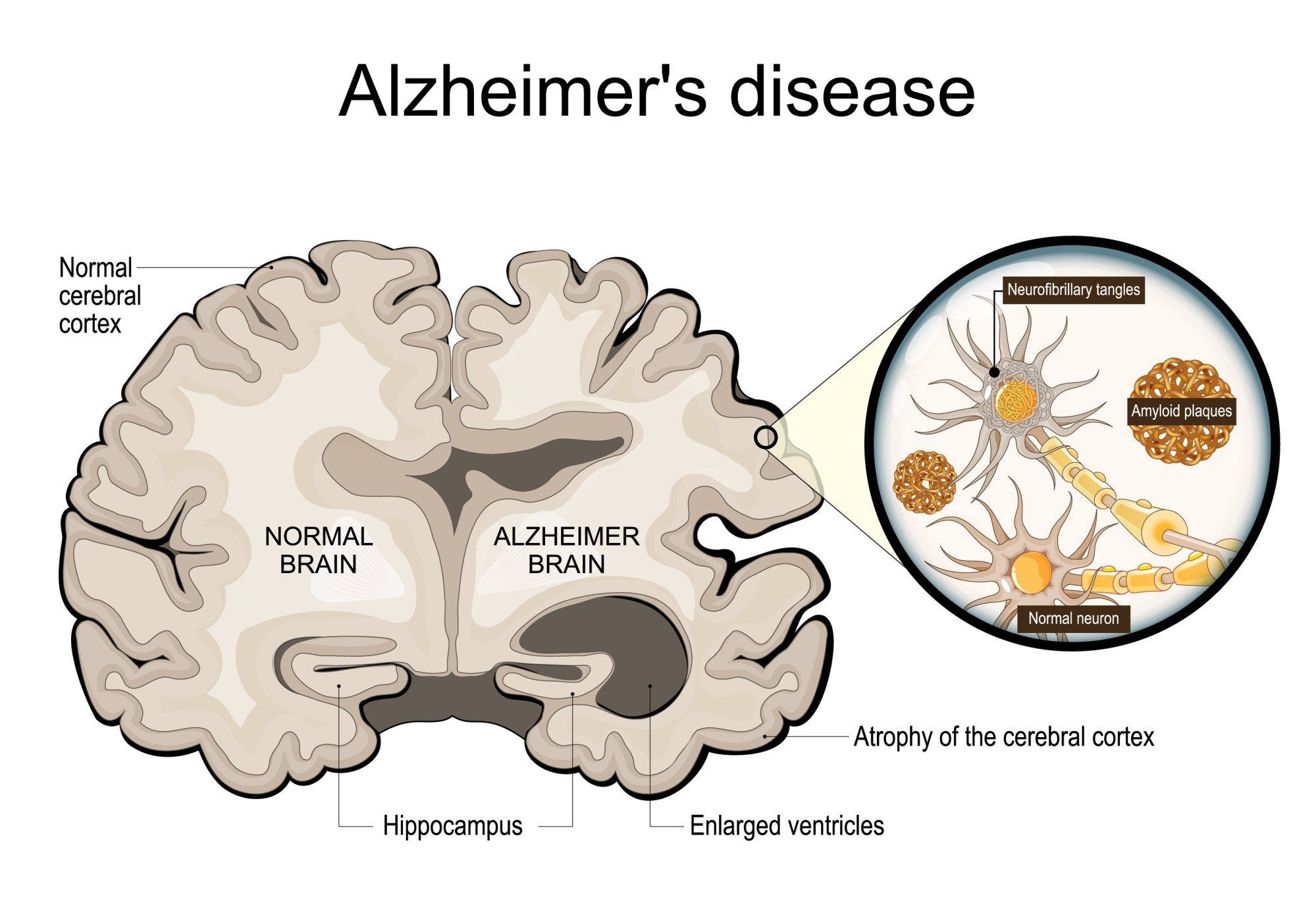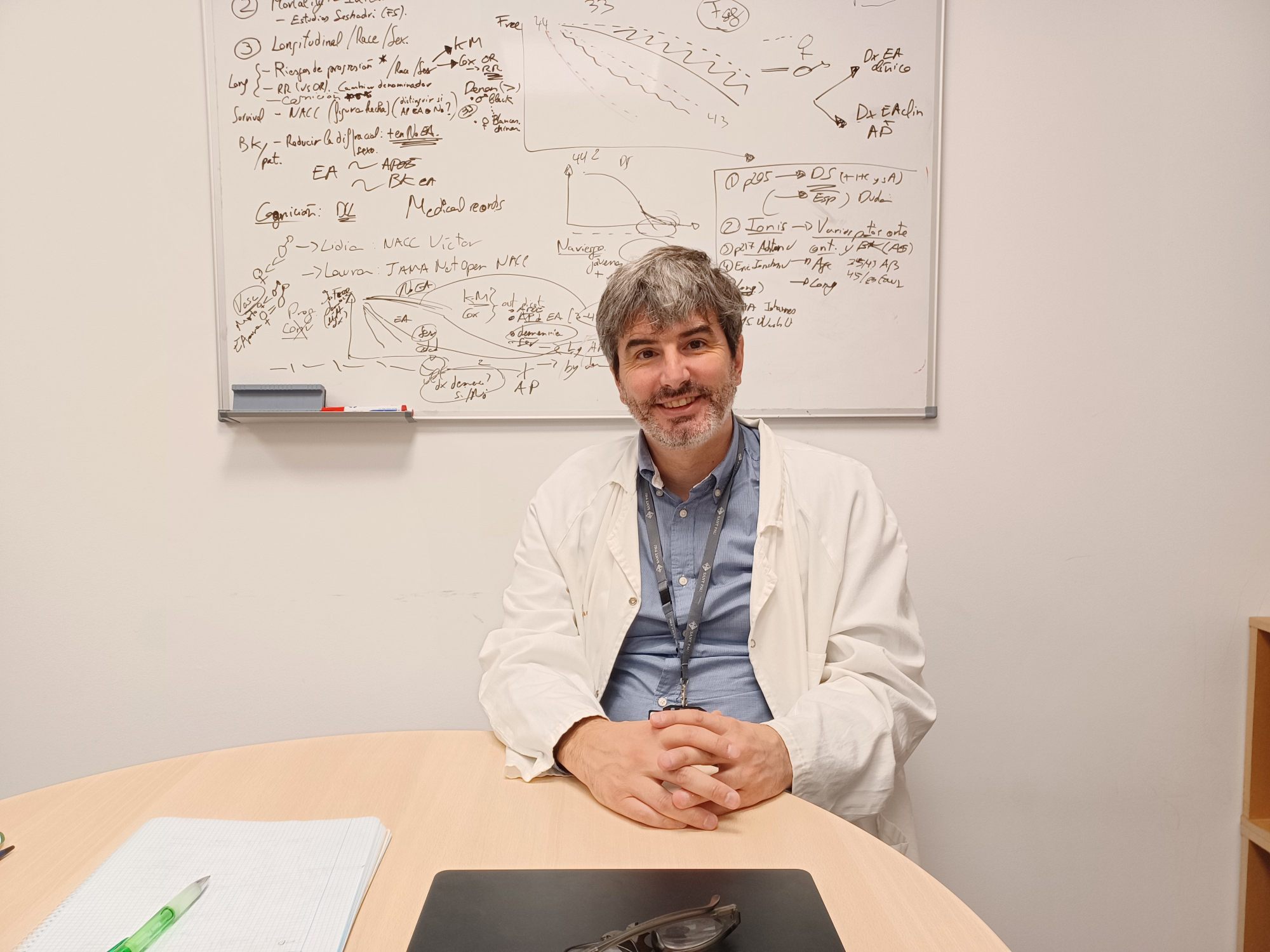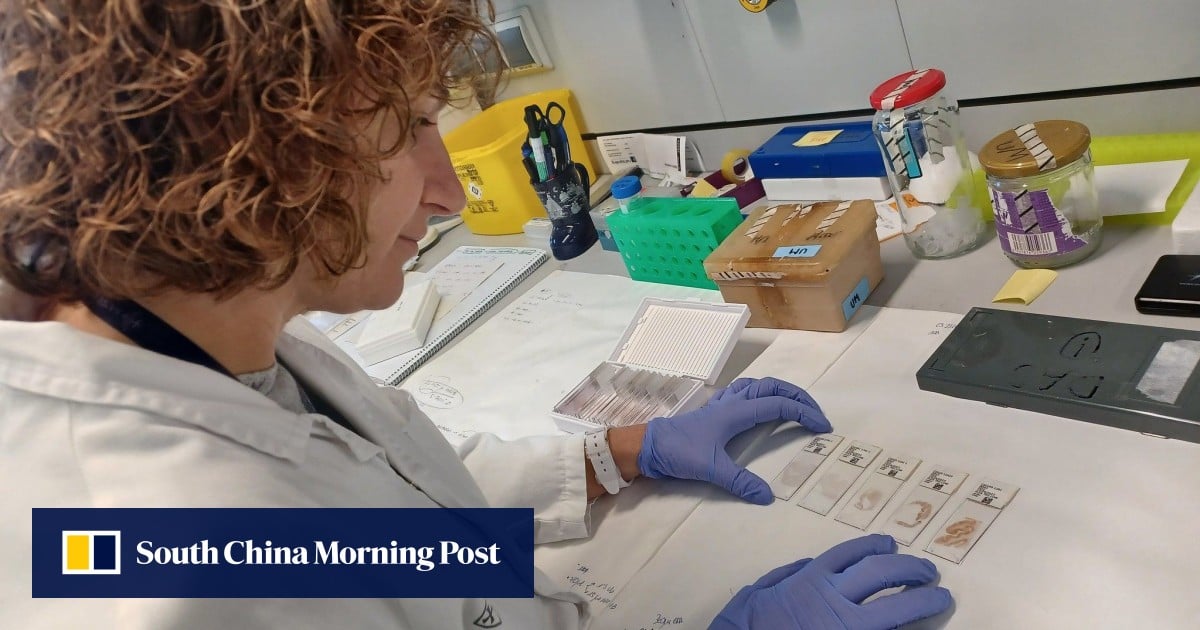
But, as Fortea is at pains to stress, you may not necessarily develop the clinical symptoms, such as cognitive decline.
It comes in several forms, called alleles, and in at least three versions. Everybody has two, one from each parent.
APOE3 is the most common and is described as “neutral”. It does not seem to have any impact in terms of risk for, or protection from, Alzheimer’s.
APOE4 is more common than APOE2. Fortea says that about 2-3 per cent of the global population carries two APOE4 genes. Despite this relatively low incidence, they account for about 15-20 per cent of Alzheimer’s disease dementia cases, he says, which underscores “the significant impact of this genetic variant”.

Carrying a pair of APOE4 genes means you will develop the pathology – the biological signs – of Alzheimer’s late in life, such as in your 70s or 80s. But you may not necessarily have any of the symptoms we associate with dementia.
Familial Alzheimer’s Disease – FAD – on the other hand, means a person will develop symptoms much earlier in their life: before 65 and commonly in their 40s or 50s, sometimes even in their 30s.
FAD occurs when certain genes – presenilin 1, presenilin 2 or amyloid precursor protein – mutate. It is very rare and accounts for less than 1 per cent of all Alzheimer’s cases. For example, in Australia at any one time there are some 100 FAD sufferers compared with more than 420,000 people with Alzheimer’s.
Carrying an identical pair of the APOE4 genes is also linked to significantly higher levels of Alzheimer’s disease biomarkers from age 55 compared to APOE3 carriers, Fortea says.
By age 65, nearly all those with the two APOE4 genes had abnormal amyloid levels in their cerebrospinal fluid, and 75 per cent had positive amyloid scans, with the prevalence increasing with age. Amyloid deposits, or plaque build-up, outside brain cells stop them from passing signals properly.
“The estimates of clinical risk for Alzheimer’s disease dementia in APOE4 carriers in previous studies are in a range comparable to BRCA1.”
He adds: “The risk of developing clinical symptoms for APOE4 carriers is very high, comparable to, if not higher than, the risk faced by women carrying the BRCA1 gene.”

Every one of us has the BRCA (BReast CAncer) gene. It comes in two versions: BRCA1 and BRCA2. As with APOE, we inherit one from each of our parents.
BRCA genes are known as tumour suppressor genes: their role is to repair cells and stop them from either growing or dividing too fast, which would result in malignancies.
But mutations – or changes – in these genes can cause the opposite to happen, and cells begin to go awry.
Roughly 13 per cent of women in the general population will develop breast cancer sometime during their lives. By contrast, 55-72 per cent of women who inherit a harmful BRCA1 gene variant, and 45-69 per cent of women who inherit a harmful BRCA2 variant, will develop breast cancer.
The BRCA test, developed 30 years ago, now saves a significant amount of money in healthcare every year – and much more importantly, thousands of women’s lives.
Preventive programmes targeting lifestyle-related factors may benefit all, whatever their genetic susceptibility to dementia
Think of the work of epidemiologist David Snowdon, a leading expert on Alzheimer’s disease. His 1986 Nun Study showed that people whose brains were riddled with the biological markers of Alzheimer’s did not always develop dementia.
Of one nun in the study, Sister Mary, Snowdon wrote that despite her advanced age (over 100) and “an abundance of neurofibrillary tangles and senile plaques, the classic lesions of Alzheimer’s disease”, she remained cognitively intact.
A French study, published in May, found increasing evidence that unhealthy environmental and lifestyle risk factors in older age were directly associated with an increased risk of dementia in all groups of genetic risk for dementia.
“Yet the public health message may be especially important for those with high genetic predisposition, as encouraging these persons to modify some of their unhealthy behaviours and risk factors is likely to provide significant benefit in reducing cognitive ageing and dementia.”

